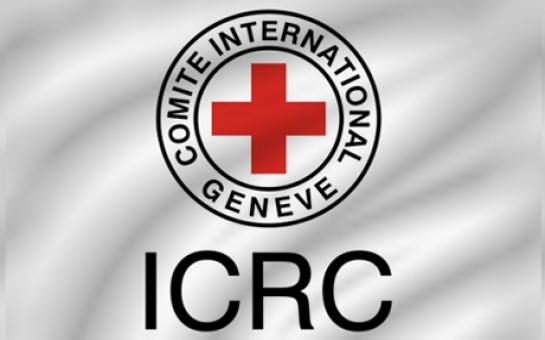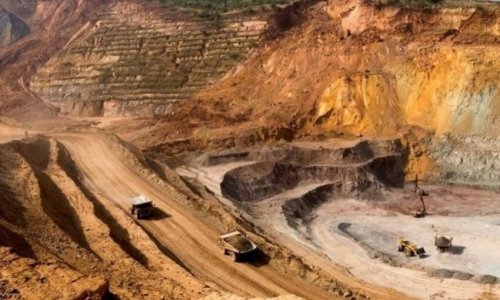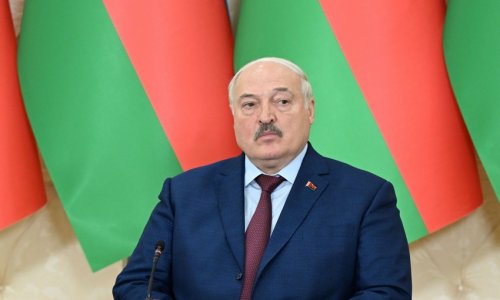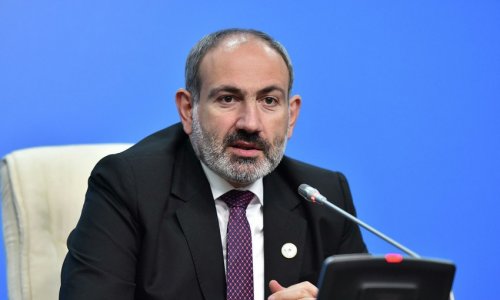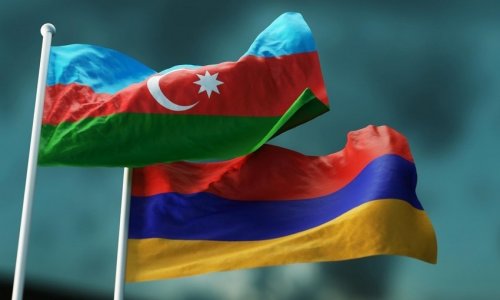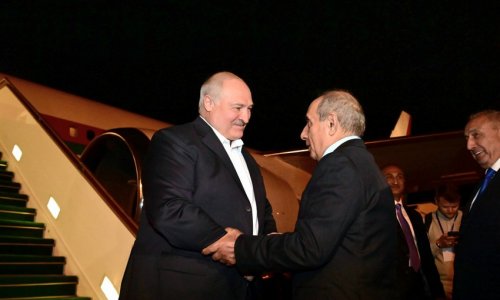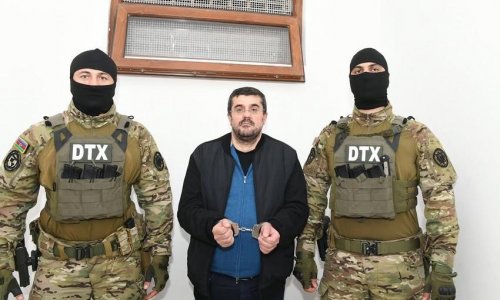The community of Gapanli is located in the district of Terter in Azerbaijan, along the Line of Contact. A ceasefire signed almost 20 years ago ended the active phase of the fighting but there are still occasional clashes and this has an impact on the safety and well-being of civilians.Farming along the front line“Our village is located very close to the front line and the fields where we sow and harvest our crops have been exposed to shooting for many years,” says Latif Hamidov, head of the village administration. “The shooting meant farmers had to work at night and could not make full use of their land. Many people living along the front line face this difficulty. And there are some areas we can't farm because they're mined.”Gapanli is one of many front-line villages in Azerbaijan to which the ICRC is giving support, helping people earn a living and mitigating the risks of living close to the line of contact. Here, 150 hectares of wheat fields are located in a dangerous area. This land makes up most of the fields available for 50 farming families.“This year we planted barley and wheat. As before, we were planning to harvest at night, but even that was too dangerous, and we were afraid to enter our fields at all,” says Mr Hamidov.Neutral intermediaryThe community asked the ICRC office in the nearby town of Barda whether the organization could arrange a temporary arrangement between the parties to the armed conflict so that there would be no exchange of fire while they harvested their land.“The community knows the ICRC office well because of the regular visits and projects implemented there. These people had already lost part of the barley crop because of the delay, but we knew we could save the remaining crops if they could get them in quickly and safely,” says Nicolas Lambert, head of the ICRC office in Barda.The ICRC delegation in Azerbaijan passed this request to its offices on the other side of the front line so that a temporary cease fire could be arranged during the harvest. The Geneva Conventions – the most widely accepted international treaties – regulate the conduct of parties to armed conflicts, sparing civilians and people not involved in hostilities the worst effects of a conflict.The ICRC's mandate includes monitoring the faithful application of the Geneva Conventions, helping to ensure that parties to a conflict minimize the suffering of civilians and helping the victims of conflict directly. This can include acting as a neutral intermediary to set up temporary arrangements between parties so that civilians can undertake essential activities.“In this case, getting the harvest in was paramount to the well-being of the village of Gapanli. The ICRC can only act as a neutral intermediary where the parties agree to abide by such an arrangement," says Lambert. “The military on the other side agreed to the ICRC's proposal and the community got together as many people and as much machinery as possible, to get the work done in the shortest possible time.”Red Cross emblemThe agreement included the ICRC's being present throughout the harvesting, remaining nearby and clearly visible, displaying its Red Cross emblem so that military units could see it. The Red Cross emblem signifies that activities of a purely humanitarian nature are taking place. The Geneva Conventions regulate who is entitled to use this emblem and oblige parties to armed conflicts to protect the personnel and objects displaying it and to facilitate their work.
The agreement was for five days of harvesting by the farmers of Gapanli. “Heavy rain on the second day nearly ruined our plans, but we managed to get the crops in within the allocated time. For the first time in many years, we harvested safely and without substantial losses. The ICRC provided us with one year of bread and much more,” says Latif Hamidov.
(ICRC)
ANN.Az

